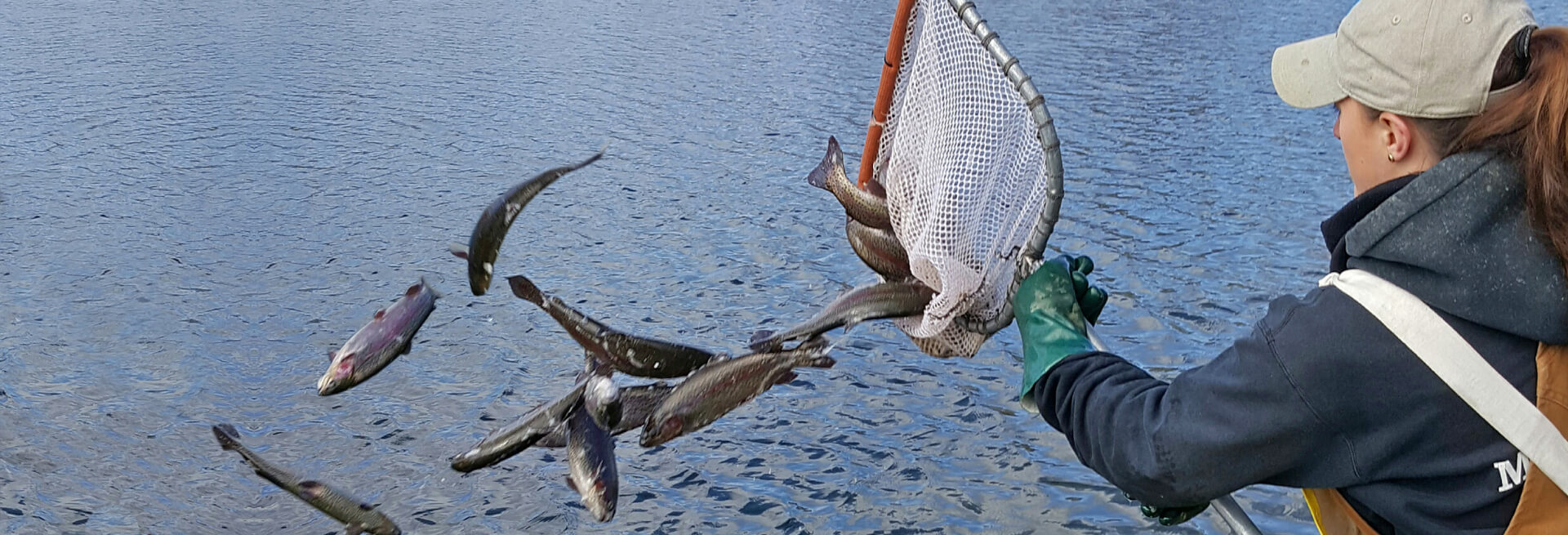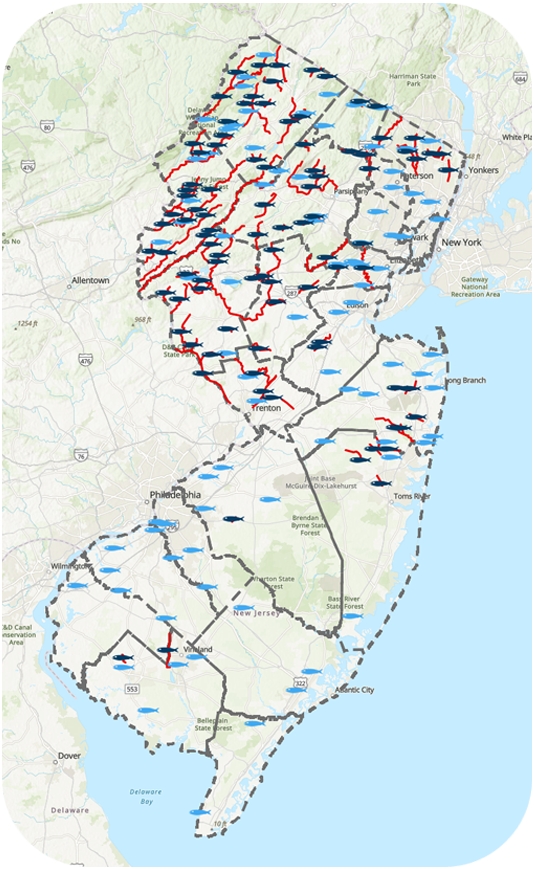NEVER BEEN BETTER!
Through Fish and Wildlife’s extensive stocking programs incredible opportunities exist not only for trout but for Walleyes, Hybrid Striped Bass and Channel Catfish as well. Muskellunge, Northern Pike, and Lake Trout come in trophy proportions. Great fishing opportunities await – so come find out why fishing in NJ has never been better!
FISH STOCKING
PROGRAMS
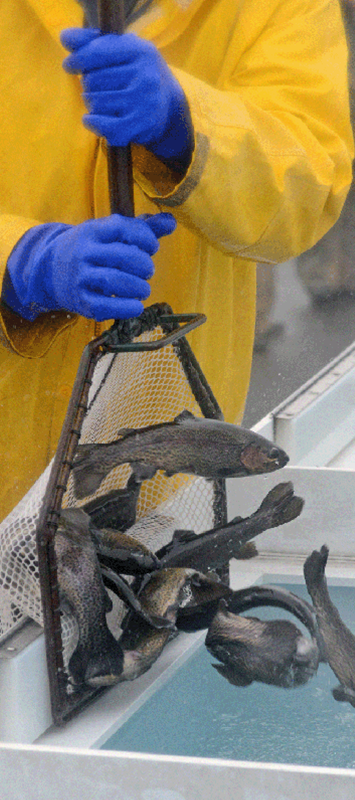
PEQUEST TROUT HATCHERY
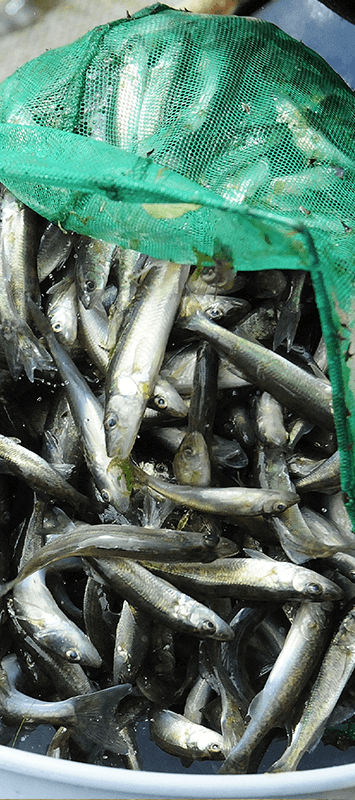
HACKETTSTOWN STATE FISH HATCHERY
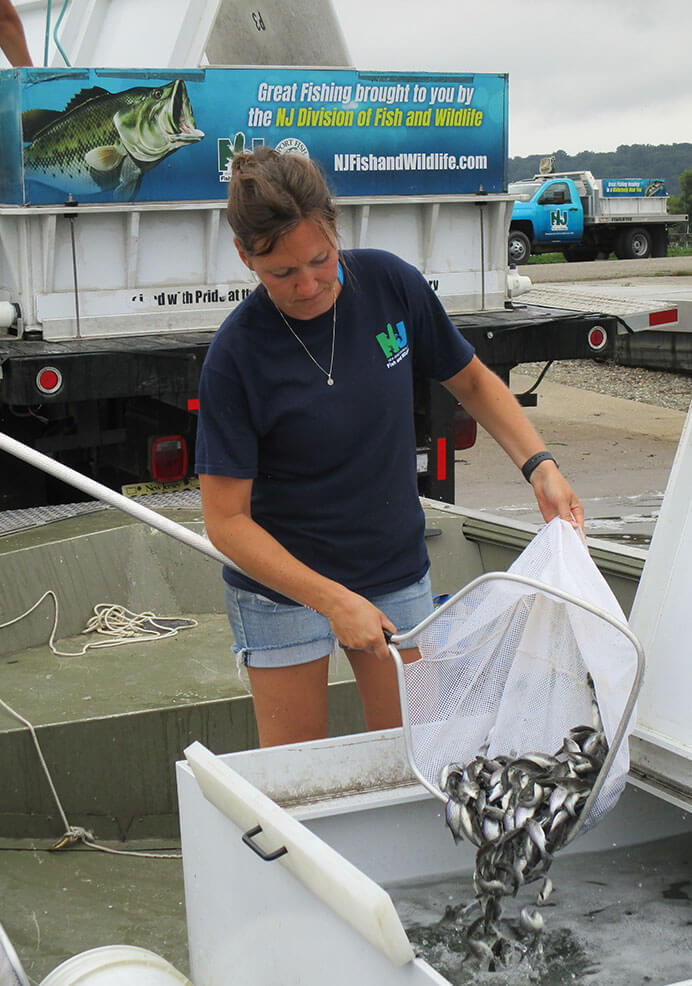
STOCKED BY LOCATION
NJ offers more than 400 publicly accessible lakes, ponds and reservoirs. Click on your county of interest and find a place that’s perfect for your outing!
PURCHASE YOUR LICENSE
frequently asked questions
Since the 2013 outbreak, a number of preventative actions have been taken and are ongoing at Pequest to help eliminate the bacterium from the hatchery and to avoid the disease in future years. All hatchery raceways are steam-cleaned and disinfected, and the remaining brook and brown trout have been vaccinated to help protect them from the disease. In addition, the hatchery will raise primarily rainbow trout since this is a species with natural resistance to the disease. Options are being explored to cover the outdoor raceways in which the trout are raised to increase biosecurity of the facility.
 Official Site of The State of New Jersey
Official Site of The State of New Jersey

